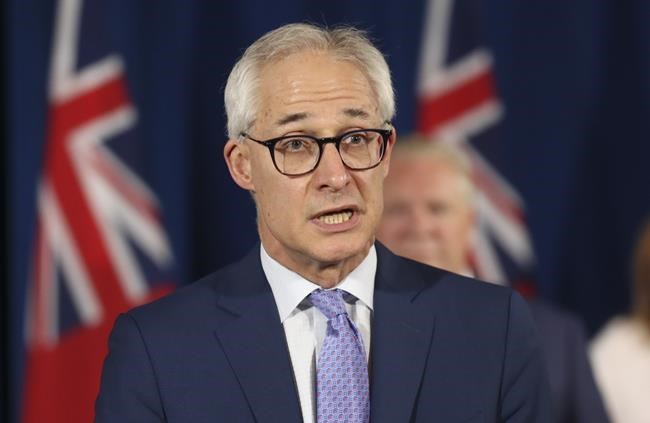The sons of a renowned Indigenous artist wept on Thursday at an inquest into their father's death, criticizing the failure to treat his mental health struggles before he died by suicide in a Thunder Bay jail.
Moses Beaver, of Nibinamik First Nation, a fly-in community 500 kilometres north of Thunder Bay, was found unresponsive in his cell in February 2017. He was taken to an area hospital where he was later pronounced dead, aged 56.
Thunder Bay's law enforcement services have faced widespread criticism in recent years, particularly over their treatment of Indigenous People.
The inquest is looking into the circumstances surrounding Beaver's death and may also make recommendations on how to better provide mental health care both in Thunder Bay's jails and across remote First Nations.
Shallum Beaver, 41, said his father's mental health began deteriorating more than two decades ago after his wife died suddenly from a brain aneurysm.
Beyond that trauma, Moses Beaver had also spent time in a day school designed to forcibly assimilate Indigenous children. There was widespread abuse in the schools, and Shallum Beaver alleged that his father had been sexually assaulted by a teacher.
Moses Beaver also lost a younger brother to suicide, his son told the inquest.
"The pain inside him was deeper than anything," he said.
Jerome Beaver, the artist's 31-year-old son, became emotional as he recalled the trauma endured by his father, a self-taught artist who depicted traditional Indigenous legends with a contemporary style in his work
"I do remember my father was a kind man," he said.
Shallum Beaver recalled his father's love of fishing and hunting, and that he would drive for hours to attend his sons' hockey games.
Evidence of his father's mental distress emerged when he was teaching an art class in Toronto in 2011, Shallum Beaver said.
"Something happened and it took six police officers to restrain him," he told the inquest.
"He was tasered and put in jail in Toronto and released the next day. He said he was paranoid that (the officers) were going to rape him and I think it reminded him of other memories from when he was younger."
Shallum Beaver said his father then moved in with family in Thunder Bay. Through that period, the artist was in and out of medical facilities and jail, he said.
Moses Beaver was subsequently diagnosed with bipolar disorder and depression and would go days without sleep, his son said.
Shallum Beaver recalled an instance where he found his father crying uncontrollably and repeatedly saying his wife's name.
"It was heartbreaking for me to witness him like this. I stood there trying to talk but I couldn't because I was crying too," he said.
Shortly before his death, Moses Beaver was jailed after assaulting a medical worker. Shallum Beaver insisted his father should have been hospitalized after the incident, not taken to the jail cell where he ultimately died.
Jurors at the inquest have heard that Moses Beaver was put on suicide watch after arriving at the Thunder Bay jail, with someone supposed to check on him regularly, but the facility was overcrowded and short-staffed at the time.
Shallum Beaver said he also went to the jail before his father's death to confirm he was taking his medications and was told by jail staff that doctors would look after him. At a hockey tournament not long after, he learned his father had died.
"I saw my wife walk to me across from the arena and she was crying and I knew right away my dad was gone," he said.
The deputy grand chief of an organization representing 49 First Nations told the inquest on Thursday that suicide is rampant in remote northern communities.
"Sadly Moses' story is not the only case," said Nishnawbe Aski Nation's Anna Betty Achneepineskum.
"We've had many individuals who went into a mental health crisis and received very little support … Moses … wasn't violent, but he was sick. Any individual that suffers from mental health illness, it should be treated as an illness and not face that stigmatization that he or she is a violent person."
The coroner's counsel said closing arguments in the inquest are to take place next week.
This report by The Canadian Press was first published May 4, 2023.
Fakiha Baig, The Canadian Press



